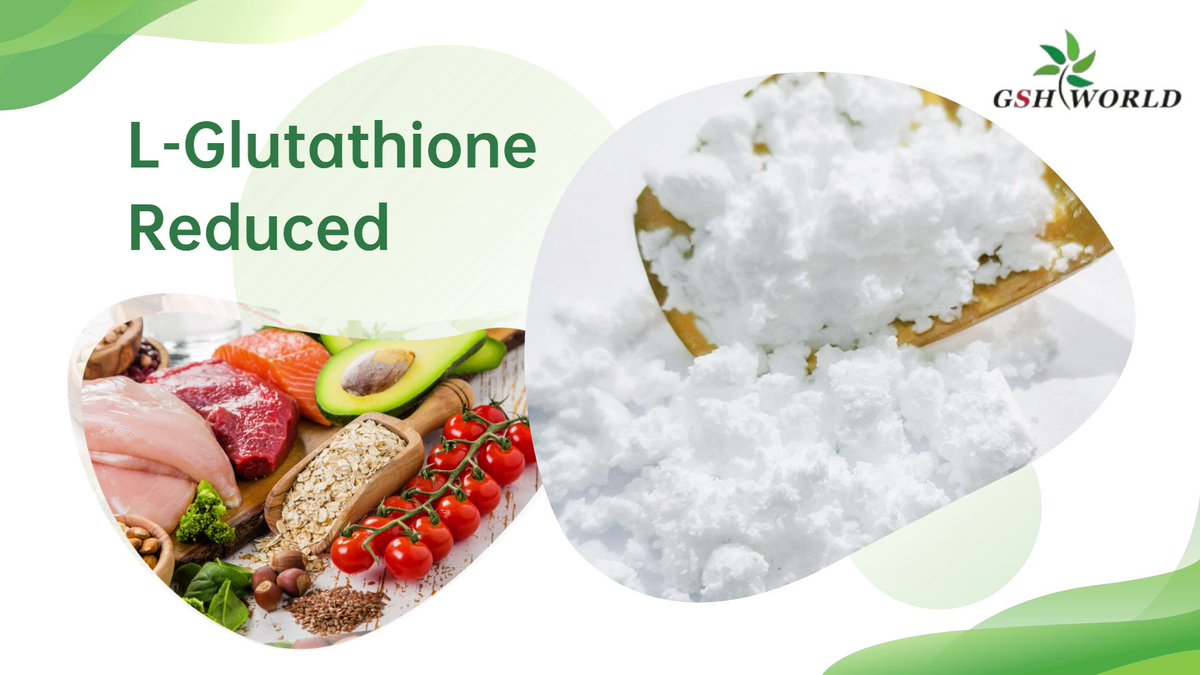Glutathione Disulfide (GSSG): A Key Player in Oxidative Stress and Antioxidant Defense
by: GSHWORLD
time: 2023-06-16
classify: Product News
Glutathione disulfide (GSSG) is a dimeric form of glutathione (GSH), a tripeptide composed of cysteine, glycine and glutamate. GSH is one of the most abundant and important antioxidants in living cells, as it can scavenge reactive oxygen species (ROS) and protect biomolecules from oxidative damage. GSSG is formed when two molecules of GSH are oxidized by ROS or other electrophiles, such as hydrogen peroxide, lipid peroxides or xenobiotics.

GSSG plays a crucial role in maintaining the redox balance and signaling in cells. The ratio of GSH to GSSG reflects the cellular oxidative stress level and regulates the activity of many enzymes and transcription factors involved in antioxidant defense, apoptosis, inflammation and cell survival. Under normal physiological conditions, the GSH/GSSG ratio is high, indicating a reduced state of the cell. However, under oxidative stress conditions, the GSH/GSSG ratio decreases, indicating an oxidized state of the cell.
The conversion of GSH to GSSG and vice versa is catalyzed by two key enzymes: glutathione peroxidase (GPx) and glutathione reductase (GR). GPx reduces ROS or other electrophiles by using GSH as a substrate and generating GSSG as a product. GR reduces GSSG back to GSH by using NADPH as a cofactor and maintaining the cellular GSH pool. The balance between GPx and GR activities determines the cellular GSH/GSSG ratio and redox status.
The regulation of GSSG levels is also influenced by other factors, such as transport, synthesis and degradation of glutathione. GSSG can be transported across the plasma membrane and the mitochondrial membrane by specific transporters, such as multidrug resistance-associated proteins (MRPs) and dicarboxylate carriers (DICs). The transport of GSSG can modulate the intracellular and extracellular redox environment and affect the intercellular communication and signaling. The synthesis of glutathione is controlled by the availability of cysteine, which is the rate-limiting precursor of glutathione. The degradation of glutathione is mediated by the enzyme gamma-glutamyltranspeptidase (GGT), which cleaves glutathione into cysteinylglycine and glutamate.
In summary, glutathione disulfide (GSSG) is a key player in oxidative stress and antioxidant defense in living cells. It is formed by the oxidation of glutathione (GSH) and can be reduced back to GSH by enzymatic or non-enzymatic mechanisms. The level and ratio of GSH and GSSG reflect the cellular redox state and regulate various biological processes related to oxidative stress. The modulation of GSSG levels by transport, synthesis and degradation can also affect the cellular redox balance and signaling.
*Special note - This article is for informational purposes only and cannot replace a doctor's treatment diagnosis and advice. It should not be regarded as a recommendation or proof of efficacy of the medical products involved. If it involves disease diagnosis, treatment, and rehabilitation, please be sure to go to a professional medical institution to seek professional advice.

by GSHWORLD
GSHWORLD is China Biological API Manufacturer. China Glutathione Supplements powder suppliers & best Glutathione benefits raw material Factory.









